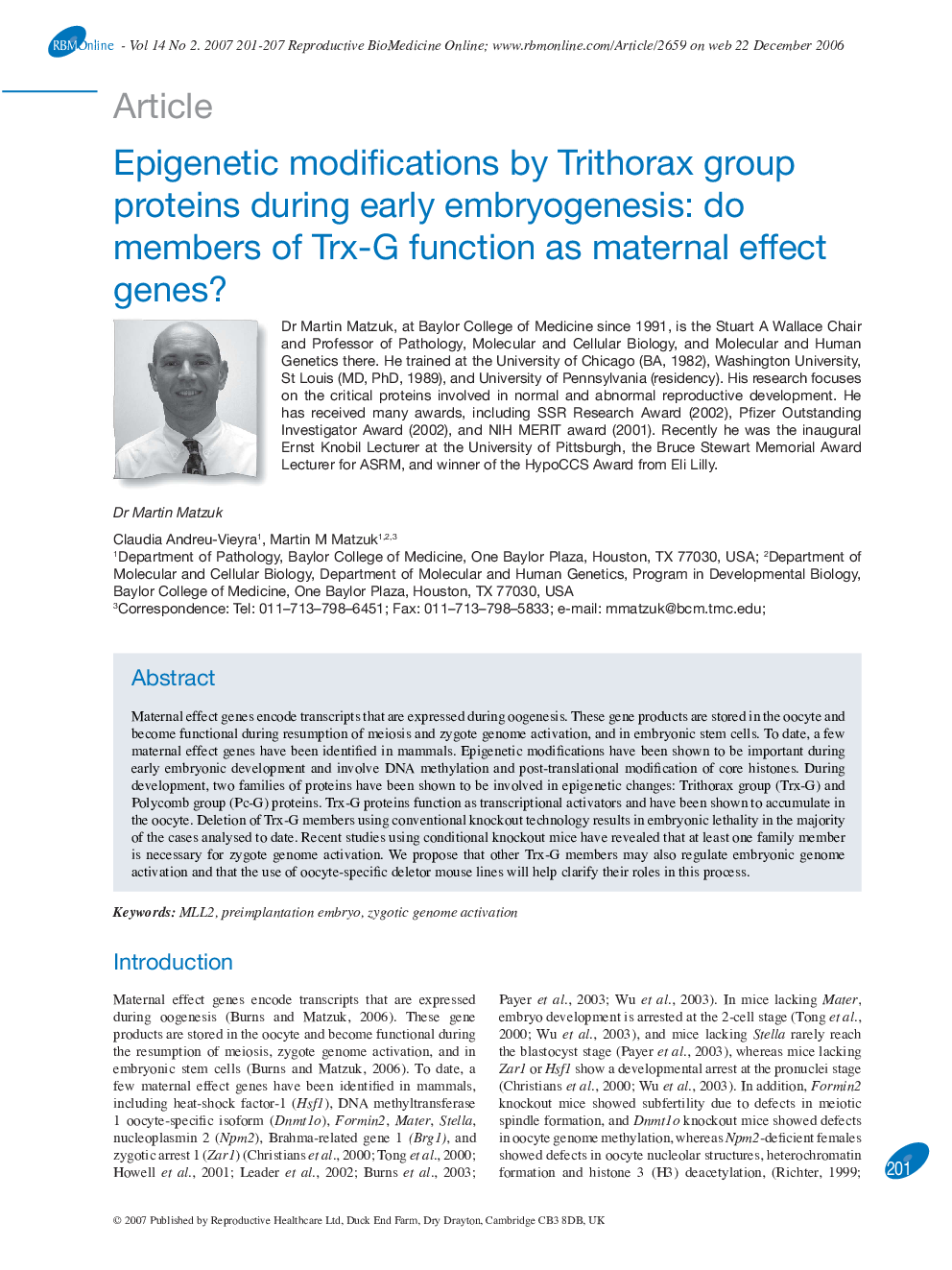| Article ID | Journal | Published Year | Pages | File Type |
|---|---|---|---|---|
| 3973228 | Reproductive BioMedicine Online | 2007 | 7 Pages |
Maternal effect genes encode transcripts that are expressed during oogenesis. These gene products are stored in the oocyte and become functional during resumption of meiosis and zygote genome activation, and in embryonic stem cells. To date, a few maternal effect genes have been identified in mammals. Epigenetic modifications have been shown to be important during early embryonic development and involve DNA methylation and post-translational modification of core histones. During development, two families of proteins have been shown to be involved in epigenetic changes: Trithorax group (Trx-G) and Polycomb group (Pc-G) proteins. Trx-G proteins function as transcriptional activators and have been shown to accumulate in the oocyte. Deletion of Trx-G members using conventional knockout technology results in embryonic lethality in the majority of the cases analysed to date. Recent studies using conditional knockout mice have revealed that at least one family member is necessary for zygote genome activation. We propose that other Trx-G members may also regulate embryonic genome activation and that the use of oocyte-specific deletor mouse lines will help clarify their roles in this process.
